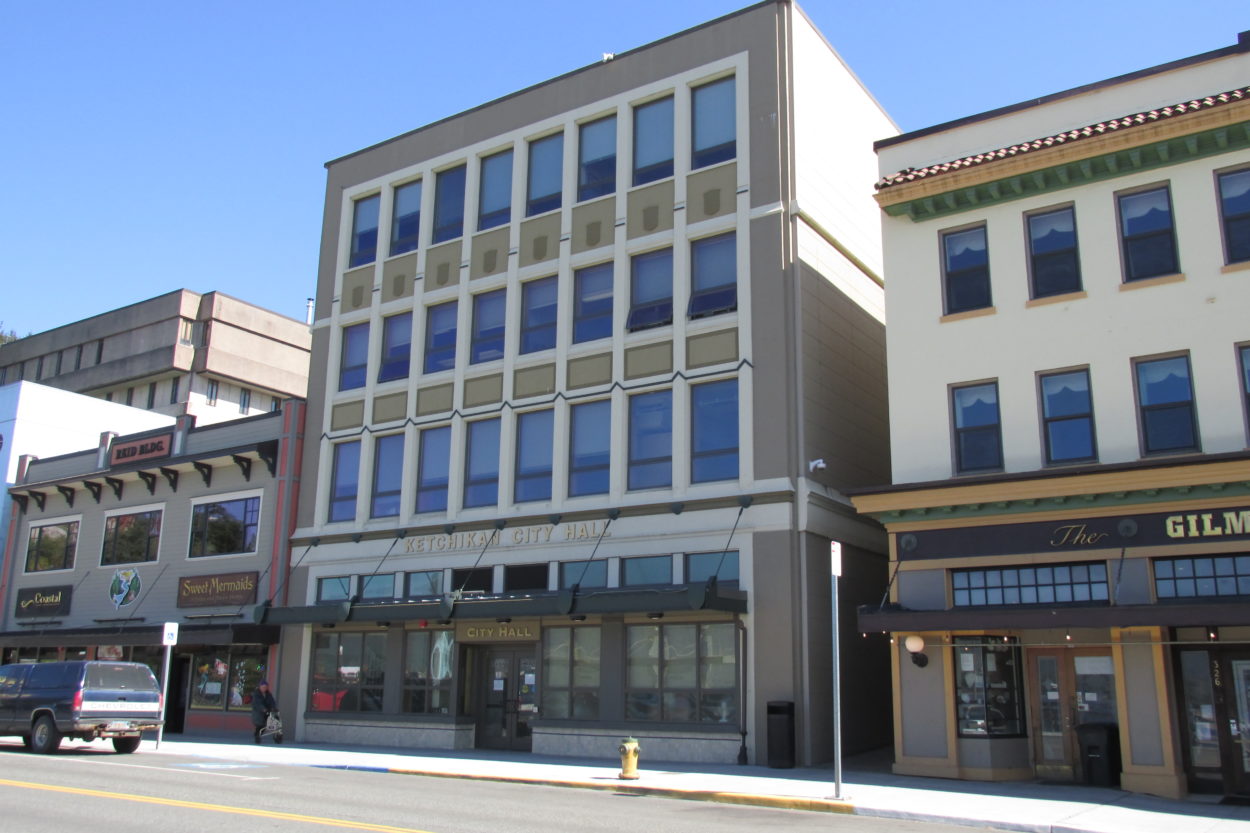
Ketchikan’s city hall on June 11, 2020 (KRBD file photo by Maria Dudzak)
Sales taxes in Ketchikan city limits are going up starting next April, but they’ll go down the following October. Ketchikan’s City Council on Thursday approved a new seasonal sales tax system in an effort to take advantage of the summer tourism season.
The plan raises the city’s sales tax by 1.5% in the summer to 5.5%. Add that to the borough’s sales tax, and consumers will pay a total of 8% sales tax from the beginning of April until the end of September. Then, in the offseason, taxes will go down, and consumers will pay 5.5% in the winter. The tax increase is projected to raise $1.9 million per year to fund pay hikes for city workers.
Council Member Judy Zenge, who manages the Plaza Mall, said that she’d heard positive feedback on the plan from community members.
“When people come to visit me at the mall, it’s usually to complain — and I was expecting that,” she said. “I had more people come and visit me about this tax thing and tell me, ‘Finally you guys are getting it.’ So by and large, people are excited that we’re finally doing something that they actually understand, and they like it.”
Council Member Lallette Kistler offered qualified support for the measure. She said she liked the idea of extracting more revenue from tourists, but the variable rate would make accounting difficult. She proposed giving some businesses an option to pay the average of the summer and winter rate year-round.
But Council Member Janalee Gage pointed out that Ketchikan isn’t the first Alaska community to institute a seasonal sales tax.
“I would suggest that businesses contact people in other communities that are already doing it, like Kenai, who have been doing it for the last 25 years,” Gage said.
Acting City Manager Lacey Simpson said the council could amend the tax system at any time to address any issues that arise.
Kistler ultimately supported the seasonal sales tax plan as it passed in a 5-2 vote. Council Members Jai Mahtani and Council Member Riley Gass voted no. Gass said he saw the seasonal tax plan as the best of several bad options to address the need for more city revenue but did not support the measure.
“I think next time this could be a lesson for us as a group: next time we make huge expenditure decisions, we’ve got to have the revenue first,” he said.
In other business, the council unanimously voted to hold this year’s fall sales tax holiday on Oct. 1, concurring with Ketchikan’s Borough Assembly. The annual tax-free shopping day typically coincides with Permanent Fund dividend distributions, which are scheduled to begin the week of Sept. 20.
The council also unanimously approved a second sales tax holiday for March 25. Ketchikan’s Borough Assembly will consider whether to waive its 2.5% tax for that day at a future meeting.





